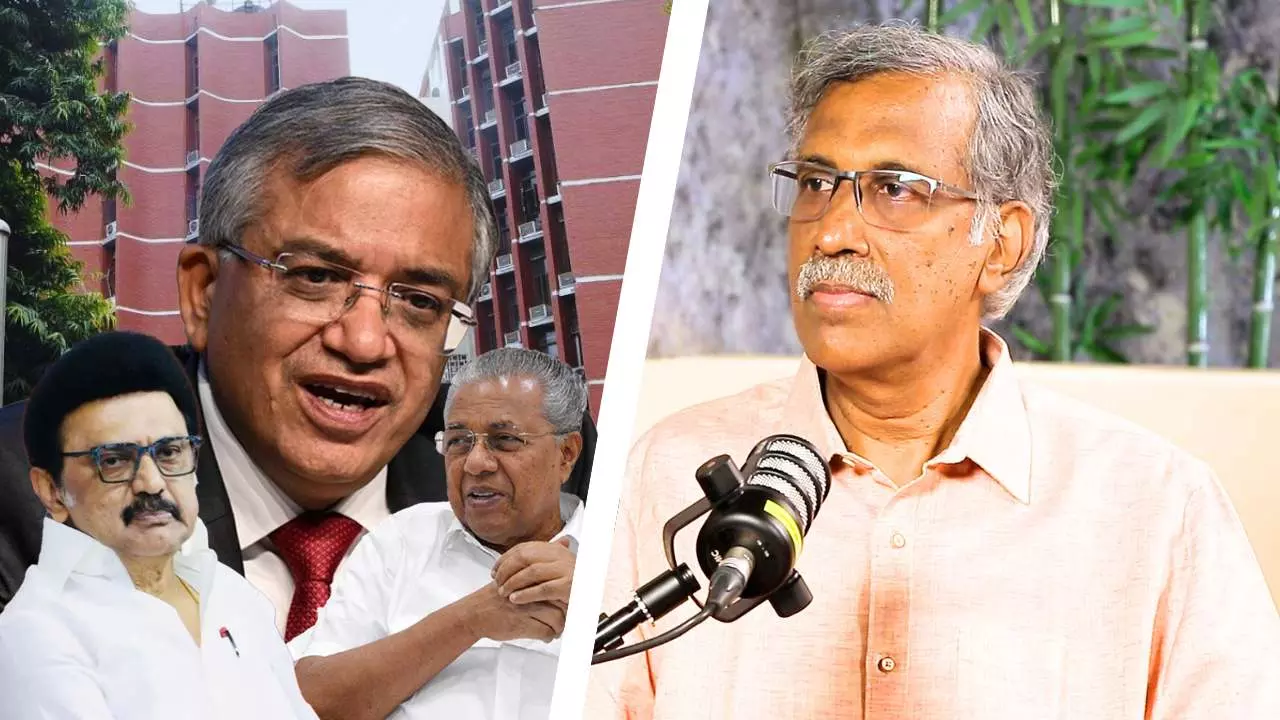The Election Commission of India's (ECI) decision to launch a Special Intensive Revision (SIR) 2.0 of electoral rolls across 12 states and Union Territories has caused ripples in the political landscape, particularly in poll-bound southern states such as Tamil Nadu and Kerala.
Both Chief Ministers — MK Stalin and Pinarayi Vijayan — have denounced the move as a “voter suppression exercise,” accusing the poll body of overreach ahead of the 2026 Assembly elections.
According to The Federal’s Editor-in-Chief S Srinivasan, the timing of the rollout raises legitimate questions. “When the exercise began in Bihar, the Election Commission had said it would be an all-India exercise. In that sense, this second phase was expected,” he said on Talking Sense with Srini.
However, he added, “But the question is whether the EC has learned any lessons from Bihar where its credibility took a hit and whether this phase will be structurally different.”
EC image dented
The EC’s first phase of the revision in Bihar earlier this year was mired in allegations of voter deletions and disenfranchisement.
“The Commission hasn’t covered itself in glory,” said Srinivasan. “Its image was dented after Bihar. There’s a genuine concern that such exercises could be used to selectively remove voters deemed unfavourable to the ruling party,” he added.
Data from Bihar has already raised red flags.
“Out of the 65 lakh deletions, 25 lakh were Muslims,” Srinivasan noted, citing activist Yogendra Yadav’s petition before the Supreme Court. "Given that Muslims form only 17 per cent of Bihar’s population, this disproportionately high number suggests the process may have been used to target a particular community,” he added.
Why SIR 2.0 is contentious
What makes SIR 2.0 contentious, Srinivasan said, is the EC’s framing of the revision as an attempt to “remove illegal citizens” from voter rolls — a move critics argue goes beyond its constitutional mandate.
“Determining citizenship is not the task of the Election Commission,” he observed, adding that the issue of citizenship is before the courts, yet the EC is using it as justification for the exercise. "That’s why suspicion persists,” Srinivasan said.
Furthermore, he said that the EC could have used technology to identify duplicate voters rather than conducting a large-scale, manual enumeration. However, when asked why software is not used to eliminate duplication, the Chief Election Commissioner said it wasn’t required. "That only deepens doubts about the true intent,” Srinivasan said.
South states protest
While Opposition parties in West Bengal and Uttar Pradesh have also raised alarms, the sharpest rebuke has come from southern states.
According to Srinivasan, Kerala and Tamil Nadu view SIR 2.0 as a "political tool". And, Stalin and Vijayan are portraying it as an attempt to disenfranchise southern voters — turning it into a regional identity issue, he added.
Yet, Srinivasan believes southern states are unlikely to face large-scale deletions. “In Tamil Nadu and Kerala, parties like the DMK, Left, and Congress have strong grassroots cadres who will remain vigilant. So, the pushback is more political than procedural — a way to counter the BJP’s northern narrative," he said.
Inconsistent approach
Ironically, Assam — where the issue of illegal immigration is most politically charged — is excluded from SIR 2.0.
“That’s the contradiction. If the aim is to identify illegals, why leave out Assam? The EC’s reasoning is that NRC-related cases are sub judice, but it highlights the inconsistency in its approach," Srinivasan argued.
The 2019 National Register of Citizens (NRC) in Assam had excluded 19 lakh people, including both Hindus and Muslims, leading to a prolonged legal and political stalemate. “If NRC’s results are yet to be finalised, it’s unclear whether the EC intends to use that list as a basis for voter rolls,” Srinivasan said.
Kerala has already passed a legislative resolution opposing the EC’s move, while Tamil Nadu has framed it as a federal confrontation. Srinivasan noted, “The EC is constitutionally autonomous, so states cannot stop it. But the optics of confrontation with Opposition-ruled states adds to the perceptions of bias.”
The controversy, he said, has once again put the Election Commission’s neutrality to test. “The onus is on the EC to prove that the umpire is fair. This was an opportunity for transparency, but the Commission’s communication remains opaque,” Srinivasan said.
Srinivasan acknowledged that the EC has introduced some procedural relaxations — allowing family members or local agents to submit forms on behalf of others and reducing the requirement for all voters to re-enroll.
“These are practical steps that will reduce stress for both citizens and officials. But they don’t address the core issue — whether the exercise is genuinely about cleaning up rolls or something more political,” Srinivasan said.



